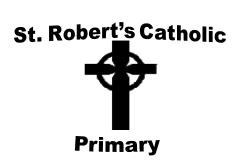Progression and Assessment
Developing a Shared Understanding of Progression:
Rationale
Developing a shared understanding of progress is a natural part of our school’s self-improvement and evaluation cycle.
Developing our own a shared understanding of progress is imperative prior to collaborating with other schools.
As a school we need to ensure that progress within our curriculum is appropriate. The Principles of Progression can provide a consistent approach to this.
The principles of progression provide a mandatory requirement of what progression must look like for learners. They describe what it means for learners to progress and the capacities and behaviours practitioners must seek to support, regardless of a learners’ stage of development. They are designed to be used to:
- understand what progression means and should look like in a given Area
- develop the curriculum and learning experiences to enable learners to progress in the ways described
- develop assessment approaches which seek to understand whether this progress is being made
The principles of progression are distinct from descriptions of learning, which provide specific reference points of what progression looks like as learners work towards the statements of what matters at different points on their journey. Together, we use these two elements to understand what it means for learners to progress, and use this to inform learning, teaching and assessment.

Our knowledge and skills continuum, as well as the descriptions of learning, underpin the medium-term plans to ensure that all pupils are moving progressively along the 3-16 continuum. In doing so pupils will be fulfilling the 5 Principles of Progression.
Pupils will be taught through their ‘stage not age’. Teachers will be required to consider the knowledge and skills /progression steps above or below their age groups to ensure that work is differentiated to meet the needs of each individual pupil. ‘Assessment for Learning’ will be central to this assessment approach and quality provision will be made within lessons for target setting/success criteria and self & peer evaluation.
Developing a Shared Understanding of Progression: developing expectations
We have at school level:
- Developed a shared vision for curriculum
- Ensured that learner progression is at the core of our vision and establish how the four purposes and the Principles of Progression relate to our learners
- Develop an understanding of the importance of progression at a whole-school level and across all individual areas
- Develop an understanding that the purpose of assessment is to support the progression of each individual learner in relation to the 3 to 16 (Collaboration within our Cluster of schools)
In each Area of Learning and Experience, we will begin to facilitate professional dialogue to:
- Develop a shared understanding of progression within each AoLE
- Develop an understanding of the importance of progression our curriculum
- Consider the most appropriate ways in which to assess that progress to support every individual learner
- Consider how learner progress in the cross-curricular skills and integral skills within each AoLE
Our Approach to Developing a shared understanding of Progression
- Termly – Pupil Progress Meeting - assess progress of pupils and support those underachieving with strategies /interventions.
- ALE leads & SLT have regular opportunities to monitor progress – books, planning, L2L & Learning walks. This identifies areas of good practice and areas for development. Actions are to be revisited when next cycle of monitoring in undertaken.
- Half termly ALE shared understanding of progress sessions-Focusing on a specific AoLE. All staff have opportunities to look through books /work and develop an understanding of progress within that Area.
- Termly focus on Learner progress in cross curricular skills – DCF Numeracy, Literacy-
- Portfolio of evidence to demonstrate progress through each progression Step 1,2&3.
- Tracking “Entry & Exit' an individual pupil along on AoLE
- End f Year AoLE Reviews – AoLE leads review all aspects of their AoLE including – areas of success, areas of development, impact on learning, and future development/ways forward.
Cluster Collaboration- Half termly meetings, initially around expectations at the end of Progression step 1, 2 & 3 in all AoLEs.
Another next step/consideration could be progression against the principle ‘increasing effectiveness as a learner’, schools discuss:
- Behaviour, attendance, welfare and other barriers to learning
- Learner independence, self-regulation, metacognition and engagement with learning
- How learners learn and the related pedagogical approaches
Evidence:
Minutes of dialogue around “progress” and what it looks like for the pupils.
Folder/ Portfolio of samples from each AoLE.
Monitoring Proformas against the 5 principles of progression.
